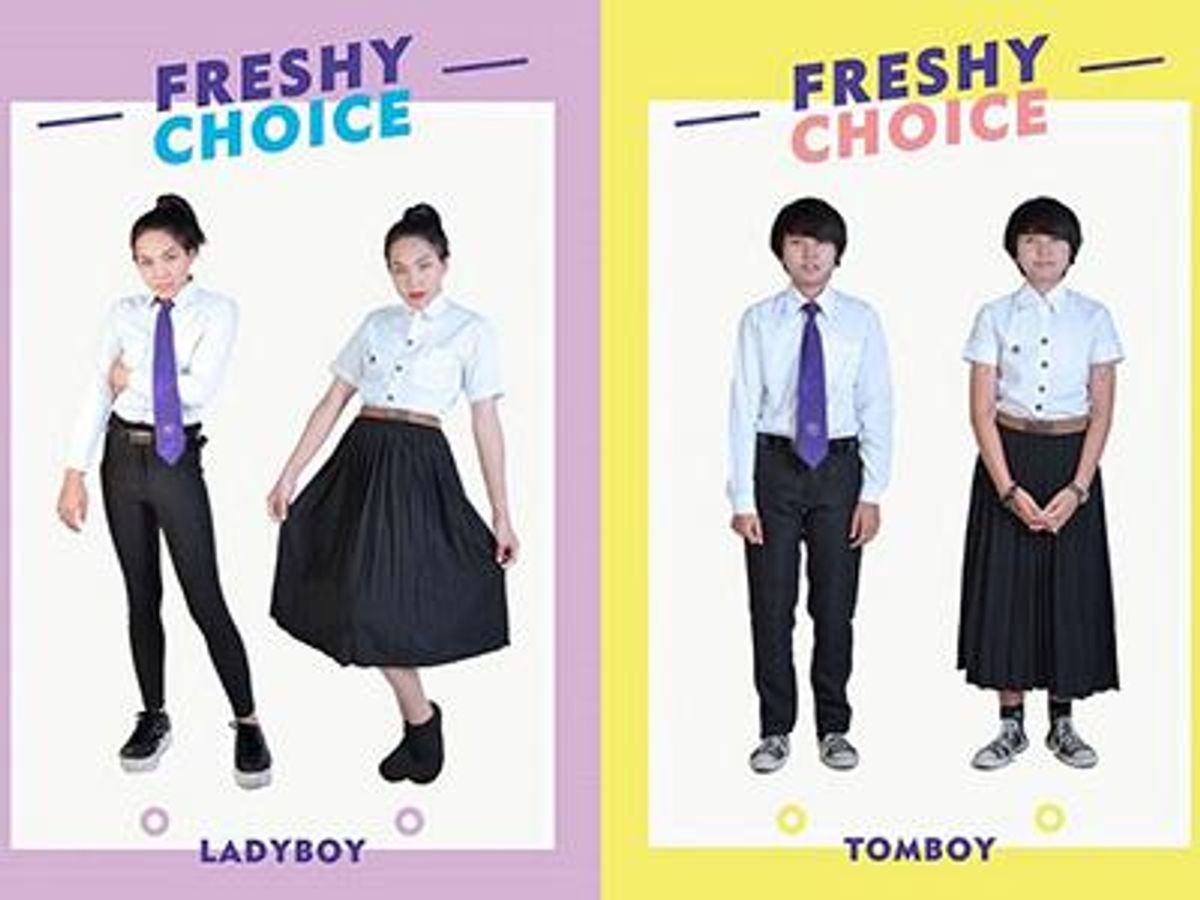Bangkok University, one of Thailand's most prominent institutions, has officially approved a new set a of school uniforms for transgender students, reports BBC News.
Monday, the University's School of Fine and Applied Arts -- which requires all students to wear a uniform, like most of the country's -- informed students of the new "tomboy" and "ladyboy" options, showing that students assigned "male" at birth can now wear long skirts, and those assigned "female" at birth can now wear a tie and slacks.
"Here's the uniform for alternative genders," the school then posted on its Facebook page, according to Bangkok news site Coconuts. "We, the School of Fine and Applied Arts has an open view on sexuality, but let's dress appropriately to follow the rules."
The first of Thailand's universities to officially accomodate trans students in its clothing policies, Bangkok University appears to be reflecting Thai society's overall acceptance of trans identities, notes the BBC. In January, Thailand's new military government recognized a legal "third gender" in the nation's new constitution.
Thai society, unlike many Western cultures, has long recognized gender categories outside the male-female binary. "Ladyboy," a culturally specific term, commonly refers to trans women, while "tom" refers to a particular kind of masculinity that resembles, but does not equate to, "butch lesbian" archetype in the U.S.
While trans people, and especially trans women, are "unusually visible" in Thai society, particularly as entertainers, the BBC notes that the inability for trans citizens to update the gender-marker on their legal identification can still result in stigma and tense situations.
As Thai businesswoman Jenisa Limpanilchart explained to CNN last year after the constitution's update, "First of all in Thailand, we're pretty well-accepted, we can walk in the street and we don't have to fear that someone's going to shoot you in the head. At the same time, the most difficult thing is at a professional level, that people don't accept people like us."
Bangkok University's new dress code may help alleviate similar difficulties, at least in the educational setting. Some Thai high schools have also tried to come up with practical solutions, with several implementing "third gender" toilets prior to the constitution's change, according to the BBC.












































































